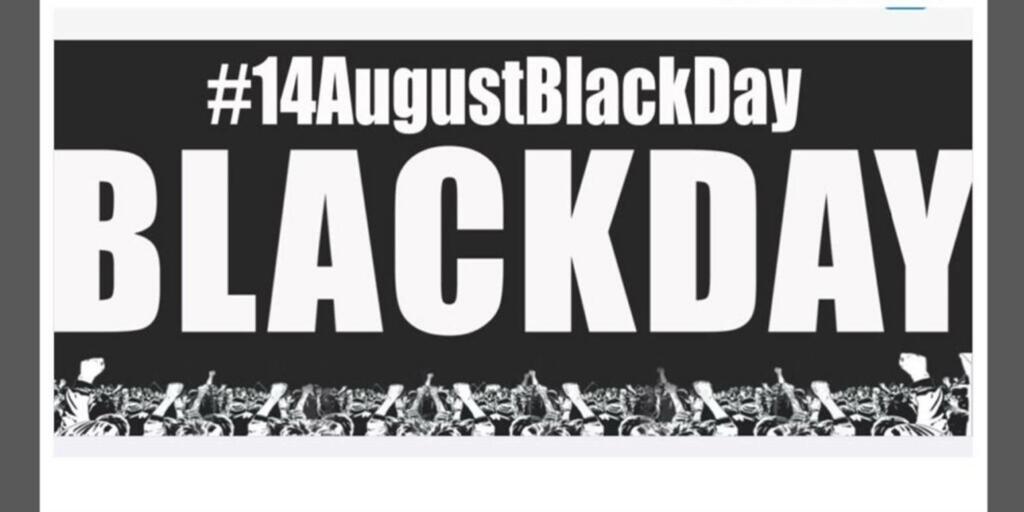To highlight the agony, suffering, and pain of millions of people, 14 August is observed every year as ‘Partition Horrors Remembrance Day’. According to the terms of partition, millions of people were forced to leave their homes and displacement caused an unending circle of violence. Due to religious hatred, social division, and poisonous politics millions of people were killed marking one of the largest massacres in human history. We remember everyone who suffered and remind successive generations to remove the poison of social divisions and strengthen the spirit of nationalism. With the horrors of partition, there are two other incidents that make 14 August a blot on India’s history.
The Partition of Bharat
Taking the exclusivist religious idea from Islamists, Mohammed Iqbal propounded a country for Muslims breaking from Bharat. After this, Mohammed Ali Jinnah capitalizing on the two-nation theory of Mohammed Iqbal advanced his political ambitions. Supported by the ‘divide and rule’ policy of the British, Jinnah created an atmosphere of violence.
A year before the independence on 16 August 1946, Jinnah proclaimed Direct Action Day to force Congress to divide the country. Massacre, pogrom, forced conversion, arson, abduction, and mass rape became the instruments of partition. With the enactment of the Indian Independence Act of 1947, the partition was officially announced and a country of Muslims was created.
Forcing millions of people to leave their ancestral homes was not an easy job. Emboldened by religious hatred and social disharmony, millions of people were forced into the fire of violence. Displacement of such a large amount of population was not that much peaceful. With about 10-20 million displacement numbers, it was the largest mass migration in human history. Further, the violence engulfed approximately more than 2 million civilians creating one of the biggest massacre of human history.
Also Read: 3 mistakes of Nehru that led to the horrors of Partition
Death of India’s first individual Olympic medallist
The day is also a blot on human history because, on this very day, we lost KD Jadhav, India’s first individual Olympic medalist, to absolute neglect and apathy, in a road accident.
KhashabaDadasaheb Jadhav was born on 15 January 1926 in Satara, Bombay. He learned wrestling from his father and started his wrestling career in 1948. In the 1948 London Olympics, he amazed people with his skills as he defeated Australian wrestler Bert Harris in the first few minutes of the bout. Finishing sixth in his first Olympics he defeated American wrestler Billy Jernigan but lost to Iranian wrestler Mansour Raeisi.
Emboldened by the success of the London Olympics, Jadhav trained hard for the Helsinki Olympics in 1952. Defeating the wrestlers from Canada, Mexico, and Germany, he won the bronze medal on 23 July 1952. He became India’s first individual to secure a medal after independence.
After leaving his active wrestling career he served in the police force for about 27 years. Despite retiring from the post of Assistant Police Commissioner, Jadhav was denied his pension benefits and was forced to live the final stage of his life in poverty. On 14 August 1984, he died in a road accident. Both the government and sports federation failed to support India’s first individual Olympic medal winner.
Nishan-e-Pakistan to Morarji R Desai
14 August is also a black day in India’s history because our former PM himself accepted our enemy’s highest honour. On 14th August 1988, Morarji Desai, who served as India’s first non-Congress prime minister, was awarded the ‘Nishan-e-Pakistan’.
In his attempt to normalize relationships with Pakistan, Morarji Desai played a major role in weakening India’s external intelligence agency, the Research and Analysis Wing (R&AW). According to former diplomat Prabhu Dayal, Desai considered RAW; an agency created by Indira Gandhi to spy on opposition leaders.
Also Read: Why Morarji Desai Won Pakistan’s Highest Civilian Honor
He is alleged to have transferred information regarding India’s intelligence operation in Pakistan to Zia-ul-Haq. Former RAW officer B. Raman in his book The Kaoboys of R&AW wrote, “Zia was a past master in the art of flattery. Often, he would ring up Morarji Desai under the pretext of consulting him on native medicine and urine therapy. Nothing flattered Morarji more. Zia would ask him with seeming earnestness in his voice: ‘Excellency, how many times one should drink the urine in a day? Should it be the first urine of the morning or can it be any time of the day?’ In a disarmed and unguarded moment one day, Morarji told him that he was aware that Pakistan was clandestinely trying to develop a military nuclear capability. Indiscreet political leaders are the unavoidable occupational hazards of the intelligence profession.”
On 14 August 1947, the country was forced to face the horrors of partition. On the same day in 1984, the country’s first individual Olympic medal winner died and after four years on the same day India’s former PM, Morarji Desai, accepted Pakistan’s top award, Nishan-e-Pakistan.
Support TFI:
Support us to strengthen the ‘Right’ ideology of cultural nationalism by purchasing the best quality garments from TFI-STORE.COM
